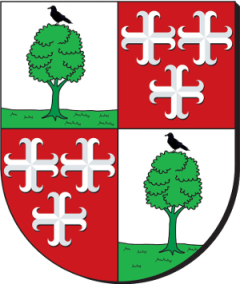On January 1st, 2013, the Hurgronje Family Fund decided to sponsor a chair at University College Roosevelt (“UCR”), which is part of the University of Utrecht. Arjan van Dixhoorn was appointed “the History of Zeeland in the World” (“HZW”)-professor at UCR. The chair is intended to both educate students on the significance of the Province of Zeeland in an international context and conduct research on the subject. UCR was founded in Middelburg in 2004. On January 1st, 2018 the fund decided to continue its financial support for another 5 years.
The HZW professor’s research and tuition focuses on the relationship between knowledge cultures, imperialism and regional and interregional competition in the early modern world (1400-1900) and also on the relationship between knowledge cultures and (quest for) power in the long-term development of an active political community in Zeeland (1300-present). He has a special interest in the way in which a philosophical culture developed in a native language in the Scheldt-region from the late fifteenth century onwards, which from 1450 to 1700 came to be known as the rederijkers chambers and subsequently developed in rapidly spreading academies, culminating in the foundation of the Zeeland Society of Arts and Sciences in 1768 (to be recognised as a ‘state academy’ by the ‘States of Zeeland’ in 1769).
The flagship course, given in the English language is the World History Research Seminar, in which students are guided in the development of their own research projects, with an emphasis on Zeeland’s history and its relation to the (global) history of knowledge and information. In other courses such as the Introduction to History (how Tourism Changed the World), World Economic History, World History and in individual research projects, students can (often) do research on Zeeland’s past and / or source material on Zeeland’s present.
The chair is also meant to encourage research in the history of Zeeland and the Scheldt region from a regional comparative and world historical perspective. To this end, he supervises a number of ‘non-doctoral’ candidates (meaning researchers who work on a dissertation in their spare time, with the ultimate goal of getting their PhD) who work on projects on Zeeland’s early modern demography and migration, shipbuilding in the Scheldt area, the urbanization of Arnemuiden, the life of a Vlissingen slave trader, a city administrator, an amateur scholar and a writer, knowledge development in the salt industry in the North Sea region, the philosophical life of Etty Hillesum (who was born in Middelburg).
This effort brought about a network of researchers from the region that are engaged in research into topics that tie in with the theme of the chair (world history, Zeeland, Scheldt estuary, knowledge cultures and nation building). Some of these researchers meet during the Hurgronje seminar, which aims to stimulate regional, non-funded research at an academic level. The chair is also engaged in the creation of a number of networks aimed at promoting historical research on the history of Zeeland and the Scheldt estuary.
The guiding principles on which the research and education are based were set out in two inaugural speeches with the title “Zeeland and the knowledge society: an early modern perspective”. The first was presented in the auditorium of Utrecht University on 3 December 2013 and the second in Middelburg’s town hall on the 11th of January 2014.
The Historiography of Learned Societies in the ‘Age of Sociability’
International Symposium
Middelburg (the Netherlands), December 13-14, 2019
University College Roosevelt, Raadzaal
Zeeland and Beyond
Academies in the history of knowledge (1750-1850)
Seventh Hurgronje Symposium
Middelburg (the Netherlands), December 16, 2019
University College Roosevelt, Raadzaal
